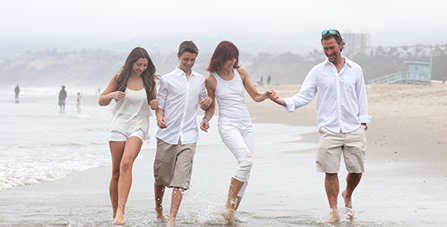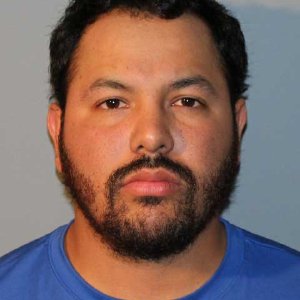The Single Most Important Way to Help Kids Stay Drug-Free

Most parents talk to their children about drugs or underage drinking and express their desire that the kids stay drug-free. And it’s incredibly important that this desire is made very clear to youth because no matter they say, they hear that message. In addition to that, it is very important to educate children on the affects of drugs so they know the truth. But there is one more step that parents should be taking that influences their ability to stay off drugs. And that is helping youth work out acceptable methods of escaping the effects of peer pressure.
Most people think of peer pressure as being ridiculed if you don’t join in drug use. And that is true. But there are much more subtle forms of peer pressure. And they look like this:
- I had just moved into the area and I was looking for a group to be friends with.
- I wanted to fit it and everyone else was (drinking, smoking pot, experimenting with pills). So I did.
- They said “no one ever died from (drinking, smoking pot)” so I went along with it.
- We were all outcasts and would do whatever was was bad so when heroin came along, we did that too.
- My sister was doing it and I was curious.
- They told me it was normal and everyone was doing it.
- It looked like everyone else was having a good time and I wanted to have a good time.
- My friends in the dorm were all smoking pot and they made it seem like so much fun.

At some point in nearly every child’s life, he (or she) will encounter this subtle peer pressure. He’ll go to a party or be hanging out with friends in a garage or even be at camp in the woods. And someone he is with will pull out alcohol, marijuana, pills or maybe inhalants or Ecstasy. He’ll remember talking with his parents about drugs. He will not want to disappoint his parents. But this subtle kind of peer pressure will exert a powerful pull on his decision.
Here’s the key: He may not quite have the life skills to escape without criticism. But if he can, with his parents’ help, work out an escape clause. In other words, he can develop a way to gracefully exit the situation without indulging. Go over these escape tactics with your child and let him (or her) choose his favorites or come up with his own ideas.
- The Buddy System: Do you have a best friend, someone you go everywhere with? If he and his parents are agreeable, practice escaping peer pressure together. There’s more safety in numbers so agree to keep each other safely drug-free.
- The Diversion: Bring up something else you have to do. Like you don’t want to drink because you’re going to play basketball next and you don’t want to look stupid. Or you have to work with your dad as soon as you get home so you can’t be all dopey and sleepy.
- The Valid Excuse: When others are starting to drink, smoke pot or use other drugs, give them a compelling excuse. Like “My parents (or coach or whoever) drug test me all the time. They’d ground me forever if I test positive.” Or “My mom will hug me and check my breath and clothes for smells. I can’t get away with anything.”
- The Health Reason: Others are drinking and passing the bottle to you? Give them a health-related reason you can’t. “Alcohol makes me puke. Every time. Maybe I can drink when I’m older.” And for other drugs: “I get such a bad headache if I smoke pot.” “I’ll be so sick to my stomach and just fall asleep if I even take one of those pills.”
- The Avoidance: This takes a lot of discipline. Say you walk into a party and there’s a few kids there that you know drink a lot or smoke pot but there’s no substances being passed around yet. You notice that there’s no parents or adult supervision and can see where this party is headed. It could be hard to make the choice to leave but the challenge to join in the substance use could be overwhelming. Take off and wait for the next party. (The Buddy System helps here.)
Rehearsing for the Big Moment
When the moment comes to escape the peer pressure, your child could feel intimidated and freeze up. Once he has chosen the tactics he’s most comfortable with—or he’s come up with his own versions—help him get comfortable using them by role playing. If you have another young person available, encourage them to practice together before they encounter a challenge outside the home. Not just once or twice, but several times until something “clicks” and they understand that they have the power to make this choice.
They can practice on their own, away from adult eyes, but they should be encouraged to continue practicing until something changes for them and they feel more capable of dealing with a tough situation. This could take a lot of encouraging and a little rewarding since most people are not terribly comfortable with role playing. But role playing could be the make or break of this whole exercise.
The Next Step
Of course, when a young person finds himself in this situation, escaping the immediate (but subtle) pressure is a good start. But what then? Is he going to be able to continue to deflect the pressure to join in if everyone else is drinking, smoking or taking pills? To save his sobriety, he’s going to have to take off, go to another location or go home. This is terribly hard for some young people who are afraid of missing out on the fun or friendships.

Parents would be wise to reward youth for escaping from these situations and getting into healthier environments. What do they really enjoy or want? A new smartphone? New permissions or freedoms? New hairstyles, manicures or pedicures for girls? Getting out of chores? Extra car privileges for older teens? Dinner at their favorite restaurant—without adults? Concert tickets? New skateboard or musical instrument? One of these rewards or a contribution toward a more expensive reward tucked away for that future purchase, can really help your teen feel validated for those right choices. Tell them about the rewards that await them when they do the right thing.
With the runaway epidemic of opioid abuse, and the dozens of deadly drugs on the market, there’s not much that’s more important than teaching your children how to protect their own sobriety. We hope these suggestions help you teach your children how to remain drug-free, no matter what situation they find themselves in.


 ®
®